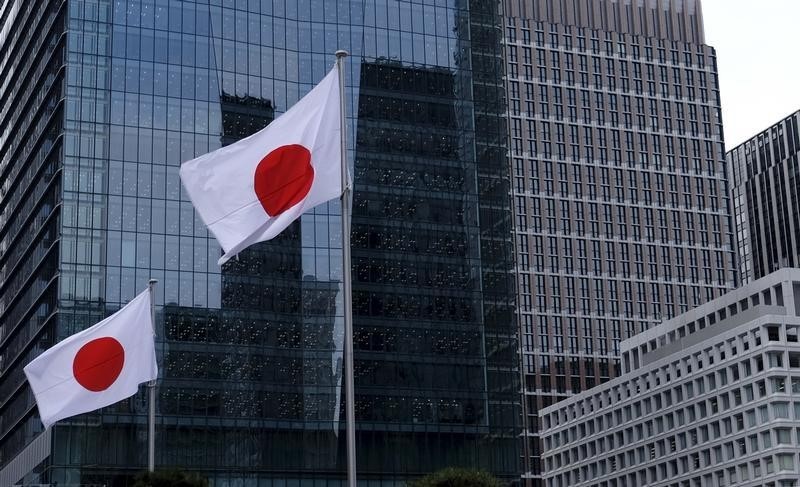By Ambar Warrick
Investing.com-- The Japanese economy unexpectedly shrank in the third quarter, preliminary data showed on Tuesday, as worsening inflation levels and further depreciation in the yen severely undercut economic growth in the country.
Gross domestic product (GDP) fell 0.3% in the three months to September 30, data from the Cabinet Office showed, ducking expectations for growth of 0.3% and falling well below the previous quarter’s reading of 1.1%.
On an annualized basis, Japanese GDP shrank 1.2%, missing expectations for growth of 1.1% and shrinking substantially from a 4.6% reading in the prior quarter.
The reading reflects the increasing pressure on the Japanese economy from rising inflation, with the core consumer price index hitting an eight-year high in September. This, coupled with a deep depreciation in the yen, has kept consumer spending - a major driver of the Japanese economy - largely subdued this year.
The yen hit a 32-year low earlier this year, and has struggled to recover from those levels due to a widening gap between local and international interest rates. The currency weakened 0.3% after Tuesday's reading, trading around 140.36 to the dollar.
While private consumption grew a slightly better than expected 0.3% in the third quarter, it still slowed substantially from the 1.2% growth in the prior quarter.
The shrinking GDP also shows that the accommodative stance adopted by the Bank of Japan, which kept interest rates negative for nearly a decade, may be doing more harm than good, especially to the yen.
A weakening yen severely ramped up the cost of imports in Japan, particularly in fuel and raw materials. This pushed up overhead costs for manufacturers, which in turn were passed on to consumers.
Japanese producer price inflation is currently trending at a 41-year high.
Rising costs also deterred companies from spending big. Data released on Tuesday showed Japanese capital expenditure grew 1.5% in the third quarter, lower than expectations of 2.1% and down from last quarter’s reading of 2.4%.
Japanese manufacturers are also facing weakening overseas demand due to global recession risks, which has kept Japan’s trade deficit elevated for much of the year.
Tuesday’s data shows that an economic boost from the scaling back of COVID-era restrictions was only temporary, and that the world’s third-largest economy has a long road to recovery.
